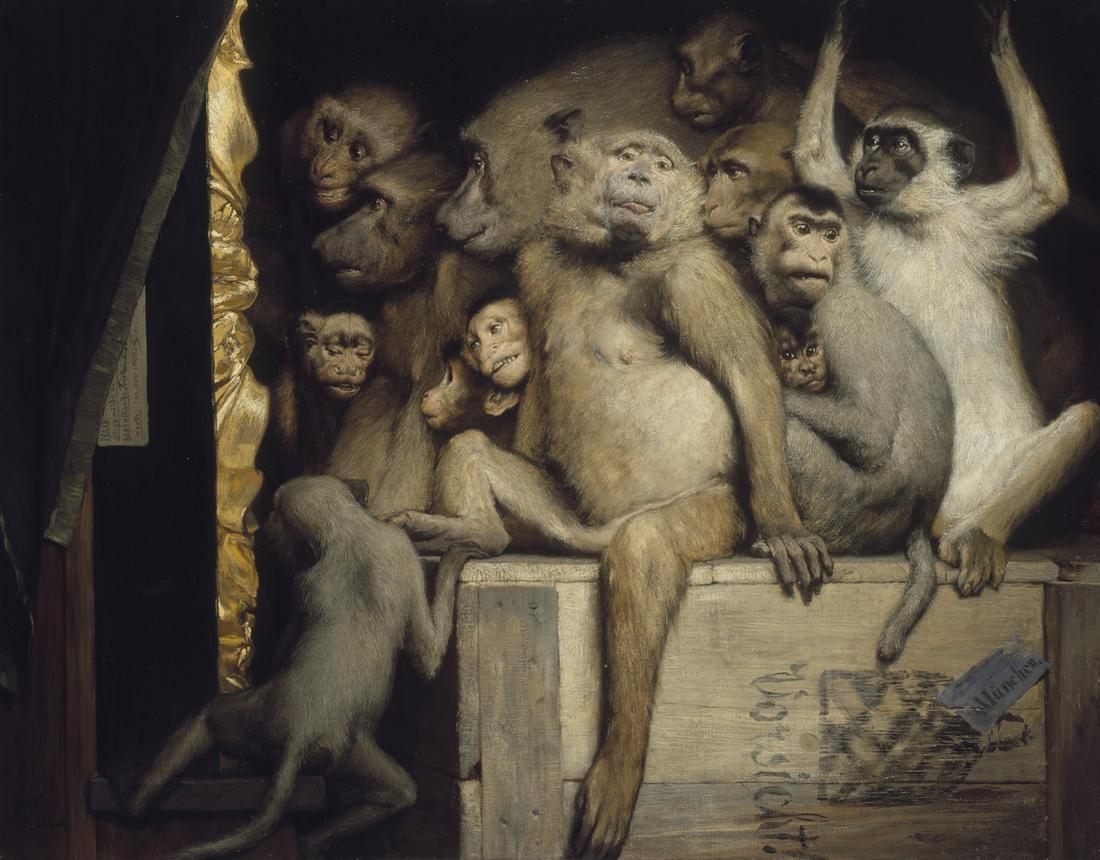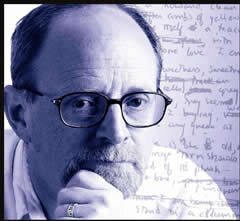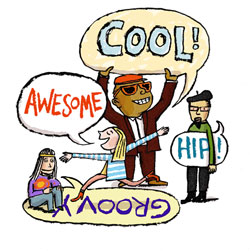An interesting story on the adoption of pop culture words into our common lexicon. Beware! The next blockbuster sci-fi movie that you see may influence your next choice of noun.
From the Guardian:
Water cooler conversation at a dictionary company tends towards the odd. A while ago I was chatting with one of my colleagues about our respective defining batches. “I’m not sure,” he said, “what to do about the plural of ‘hobbit’. There are some citations for ‘hobbitses’, but I think they may be facetious uses. Have any thoughts?”
I did: “We enter ‘hobbit’ into the dictionary?” You learn something new every day.
Pop culture is a goldmine of neologisms, and science fiction and fantasy is one rich seam that has been contributing to English for hundreds of years. Yes, hundreds: because what is Gulliver’s Travels but a fantasy satire of 18th-century travel novels? And what is Frankenstein but science fiction? The name of Mary Shelley’s monster lives on both as its own word and as a combining form used in words like “frankenfood”. And Swift’s fantasy novel was so evocative, we adopted a number of words from it, such as “Lilliputian”, the tongue-twisting “Brobdingnagian”, and – surprise – “yahoo”.
Don’t be surprised. Many words have their origins in science fiction and fantasy writing, but have been so far removed from their original contexts that we’ve forgotten. George Orwell gave us “doublespeak”; Carl Sagan is responsible for the term “nuclear winter”; and Isaac Asimov coined “microcomputer” and “robotics”. And, yes, “blaster”, as in “Hokey religions and ancient weapons are no match for a good blaster at your side, kid.”
Which brings us to the familiar and more modern era of sci-fi and fantasy, ones filled with tricorders, lightsabers, dark lords in fiery mountain fortresses, and space cowboys. Indeed, we have whole cable channels devoted to sci-fi and fantasy shows, and the big blockbuster movie this season is Star Trek (again). So why haven’t we seen “tricorder” and “lightsaber” entered into the dictionary? When will the dictionary give “Quidditch” its due? Whither “gorram”?
All fields have their own vocabulary and, as often happens, that vocabulary is often isolated to that field. When an ad executive talks about a “deck”, they are not referring to the same “deck” that poker players use, or the same “deck” that sailors work on. When specialized vocabulary does appear outside of its particular field and in more general literature, it’s often long after its initial point of origin. This process is no different with words from science fiction and fantasy. “Tricorder”, for instance, is used in print, but most often only to refer to the medical diagnostic device used in the Star Trek movies. It’s not quite generic enough to merit entry as a general vocabulary word.
In some cases, the people who gave us the word aren’t keen to see it taken outside of its intended world and used with an extended meaning. Consequently, some coinages don’t get into print as often as you’d think: “Jedi mind trick” only appears four times in the Corpus of Contemporary American English. That corpus contains over 450 million indexed words.
Savvy writers of each genre also liked to resurrect and breathe new life into old words. JRR Tolkien not only gave us “hobbit”, he also popularized the plural “dwarves”, which has appeared in English with increasing frequency since the publication of The Hobbit in 1968. “Eldritch”, which dates to the 1500s, is linked in the modern mind almost exclusively to the stories of HP Lovecraft. The verb “terraform” that was most recently popularized by Joss Whedon’s show Firefly dates back to the 1940s, though it was uncommon until Firefly aired. Prior to 1977, storm troopers were Nazis.
Even new words can look old: JK Rowling’s “muggle” is a coinage of her own devising – but there are earlier, rarer “muggles” entered into the Oxford English Dictionary (one meaning “a tail resembling that of a fish”, and another meaning “a young woman or sweetheart”), along with a “dumbledore” (“a bumble-bee”) and a “hagrid” (a variant of “hag-ridden” meaning “afflicted by nightmares”).
More interesting to the lexicographer is that, in spite of the devoted following that sci-fi and fantasy each have – of the top 10 highest-grossing film franchises in history, at least five of them are science fiction or fantasy – we haven’t adopted more sci-fi and fantasy words into general use. Perhaps, in the case of sci-fi, we just need to wait for technology to improve to the point that we can talk with our co-workers about jumping into hyperspace or hanging out on the holodeck.
Read the entire article here.

 If you are an English speaker and are over the age of 39 you may be pondering the fate of the English language. As the younger generations fill cyberspace with terabytes of misspelled texts and tweets do you not wonder if gorgeous grammatical language will survive? Are the technophobes and anti-Twitterites doomed to a future world of #hashtag-driven conversation and ADHD-like literature? Those of us who care are reminded of George Orwell’s 1946 essay “Politics and the English Language”, in which he decried the swelling ugliness of the language at the time.
If you are an English speaker and are over the age of 39 you may be pondering the fate of the English language. As the younger generations fill cyberspace with terabytes of misspelled texts and tweets do you not wonder if gorgeous grammatical language will survive? Are the technophobes and anti-Twitterites doomed to a future world of #hashtag-driven conversation and ADHD-like literature? Those of us who care are reminded of George Orwell’s 1946 essay “Politics and the English Language”, in which he decried the swelling ugliness of the language at the time. Some words give us the creeps, they raise the hair on back of our heads, they make us squirm and give us an internal shudder. “Moist” is such as word.
Some words give us the creeps, they raise the hair on back of our heads, they make us squirm and give us an internal shudder. “Moist” is such as word. No, we don’t mean war on apostasy, for which many have been hung, drawn, quartered, burned and beheaded. And no, “apostrophes” are not a new sect of fundamentalist terrorists.
No, we don’t mean war on apostasy, for which many have been hung, drawn, quartered, burned and beheaded. And no, “apostrophes” are not a new sect of fundamentalist terrorists.


 FOMO is an increasing “problem” for college students and other young adults. Interestingly, and somewhat ironically, FOMO seems to be a more chronic issue in a culture mediated by online social networks. So, what is FOMO? And do you have it?
FOMO is an increasing “problem” for college students and other young adults. Interestingly, and somewhat ironically, FOMO seems to be a more chronic issue in a culture mediated by online social networks. So, what is FOMO? And do you have it? Peter Ludlow, professor of philosophy at Northwestern University, has authored a number of fascinating articles on the philosophy of language and linguistics. Here he discusses his view of language as a dynamic, living organism. Literalists take note.
Peter Ludlow, professor of philosophy at Northwestern University, has authored a number of fascinating articles on the philosophy of language and linguistics. Here he discusses his view of language as a dynamic, living organism. Literalists take note. In the early 19th century Noah Webster set about re-defining written English. His aim was to standardize the spoken word in the fledgling nation and to distinguish American from British usage. In his own words, “as an independent nation, our honor requires us to have a system of our own, in language as well as government.”
In the early 19th century Noah Webster set about re-defining written English. His aim was to standardize the spoken word in the fledgling nation and to distinguish American from British usage. In his own words, “as an independent nation, our honor requires us to have a system of our own, in language as well as government.”
 As any Italian speaker would attest, the moon, of course is utterly feminine. It is “la luna”. Now, to a German it is “der mond”, and very masculine.
As any Italian speaker would attest, the moon, of course is utterly feminine. It is “la luna”. Now, to a German it is “der mond”, and very masculine.
 This week theDiagonal triangulates its sights on the topic of language and communication. So, we introduce an apt poem by Robert Duncan. Of Robert Duncan, Poetry Foundation writes:
This week theDiagonal triangulates its sights on the topic of language and communication. So, we introduce an apt poem by Robert Duncan. Of Robert Duncan, Poetry Foundation writes:
 Why do some words take hold in the public consciousness and persist through generations while others fall by the wayside after one season?
Why do some words take hold in the public consciousness and persist through generations while others fall by the wayside after one season?
 [div class=attrib]From Eurozine:[end-div]
[div class=attrib]From Eurozine:[end-div]